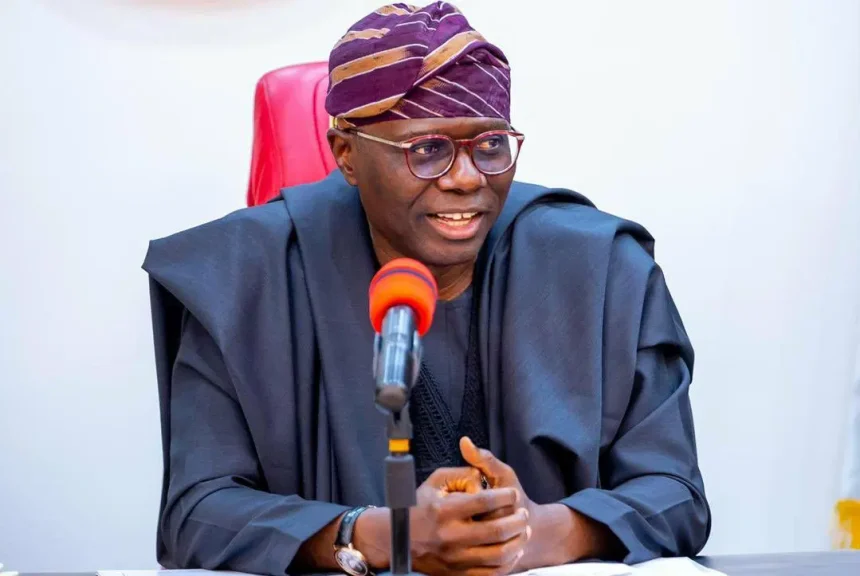Governor Babajide Sanwo-Olu of Lagos State has said that Lagos is open for business and investment as he seeks a stronger partnership with the state of Georgia.
The governor, who spoke to participants at the U.S.-Nigeria Policy and Trade Forum held at the Georgia State Capitol, Atlanta, on Friday, said Lagos wants to forge partnerships that would outlive the current administration and shape generations to come.
He said he wants to work with Georgia to create sister-city frameworks to connect Atlanta and Lagos more deliberately, with a focus on infrastructure, healthcare, education, technology, and the creative industries.
Sanwo-Olu added that when the two cities rise together, Nigeria and the United States will prosper together.
The event was attended by lawmakers of the State of Georgia, members of the Georgia African Legislative Caucus, business leaders, members of the Nigerian diaspora, and friends of Lagos and Nigeria.
Sanwo-Olu said the forum was not just about Nigeria and the U.S. but about Lagos and Georgia finding new synergies in trade, policy collaboration and diaspora relations.
He noted that “Atlanta is a logistics and technology hub for the American South, and Lagos serves as the gateway to West Africa.
” Both cities thrive at the intersection of trade, innovation and culture,” Sanwo-Olu said.
According to him, Georgia’s strengths in logistics, agribusiness, film and technology align directly with Lagos’ strategic priorities.
“The Georgia African Legislative Caucus has shown visionary leadership in connecting diaspora voices to policymaking.
“Lagos is eager to work with you in shaping legislation and frameworks that deepen subnational ties,” he said.
He described Nigerians in Georgia as “our greatest export, entrepreneurs, academics and professionals who serve as bridges of trust and innovation.
“We invite you to invest not only in Nigeria but also to mentor, connect and build with us,” he said.
Sanwo-Olu stressed that while Nigeria and the U.S. shared deep and historic ties, the bond between Lagos state and Georgia carried unique promise.
He pointed out that Atlanta hosts one of the largest Nigerian diaspora communities in the U.S., while Lagos is home to Africa’s most ambitious megacity project, a city of over 24 million people, generating more than 30 per cent of Nigeria’s GDP and over 50 per cent of its non-oil trade value.
“Just as Georgia has become a logistics and technology hub for the American South, Lagos is the gateway to West Africa, handling over 70 per cent of Nigeria’s seaport cargo throughput and serving as the preferred entry point for investors into Africa’s largest market,” he said.
He added that Lagos is the first subnational in Africa poised to issue a Green Bond to finance sustainable infrastructure, while also pioneering clean energy markets, electric mobility and climate-resilient projects to ensure that the state is not only Africa’s economic capital but also its sustainability leader.
Sanwo-Olu said the state government, through partnerships with Afreximbank, MOFI and global investors, is unlocking billions in capital for transformative projects.
He described Lagos as an economic powerhouse with a large population and market scale, boasting of infrastructure transformation, innovation and a vibrant youth population.
“In 2024 alone, Lagos attracted 5.95 billion dollars in foreign capital inflows over two-thirds of Nigeria’s total. Even in Q1 2025, Lagos remained a dominant investment destination, drawing 2.56 billion dollars despite global headwinds,” he said.
He said by 2030 Lagos would have been projected to be the ninth-largest city economy in the world, with a population exceeding 30 million and offering one of the continent’s deepest consumer markets.
“From the Lagos Rail Mass Transit (Blue and Red Lines) to the upcoming 68km Green Line metro project, and from the Lekki Deep Seaport to the new Lagos International Financial Centre, we are deliberately positioning Lagos as a global city ready for business,” he said.
Sanwo-Olu emphasised that Lagos is the beating heart of Africa’s tech ecosystem, home to more than 2,500 start-ups, including unicorns like Flutterwave and Andela.
“Every day, Lagosians demonstrate that Africa’s future will be digitally powered,” Sanwo-Olu said.



